Modesty is a great character brought by the
Sharia, and it is one of the loft morals that Islam commanded, approved, and desired,
and it is one of the most distinguishing features of a Muslim woman from others
Modesty adorns its character. The Prophet, peace and blessings be upon him, said: “Every religion has an attitude, and the character of Islam is modesty
Ibn Al-Qayyim, may God have mercy on him, said: (Modesty is derived from life, for the living heart is alive in it. Modesty prevents him from evil, for the life of the heart is the barrier from evil things that corrupt the heart
So we will present what does Quran say about women’s modesty.
What is the modesty of a woman?
Modesty is a fence that preserves the dignity of a Muslim woman, and preserves her behavior away from obscenity, and her words away from obscenity, and thus she rises from indecency
And when this fence is breached and modesty goes away, all standards fall into error
and the Muslim woman, then, issues what is not commensurate with her uniqueness and distinction, and the honor that God Almighty has honored with her
and about what does Quran say about women’s modesty, there are many texts in the Quran about that.
Modesty is a great trait in Islam. Because it is a generous character, it causes its owner to abandon the ugliness and vices, to display virtues
and to go to high matters, and the Messenger of God, peace and blessings be upon him, said:
“Modesty brings nothing but good
The Prophet and the Quran says about women’s modesty many verses and texts.
” Read also: how many ayahs are in the quran“
What does the Quran say about women’s modesty?
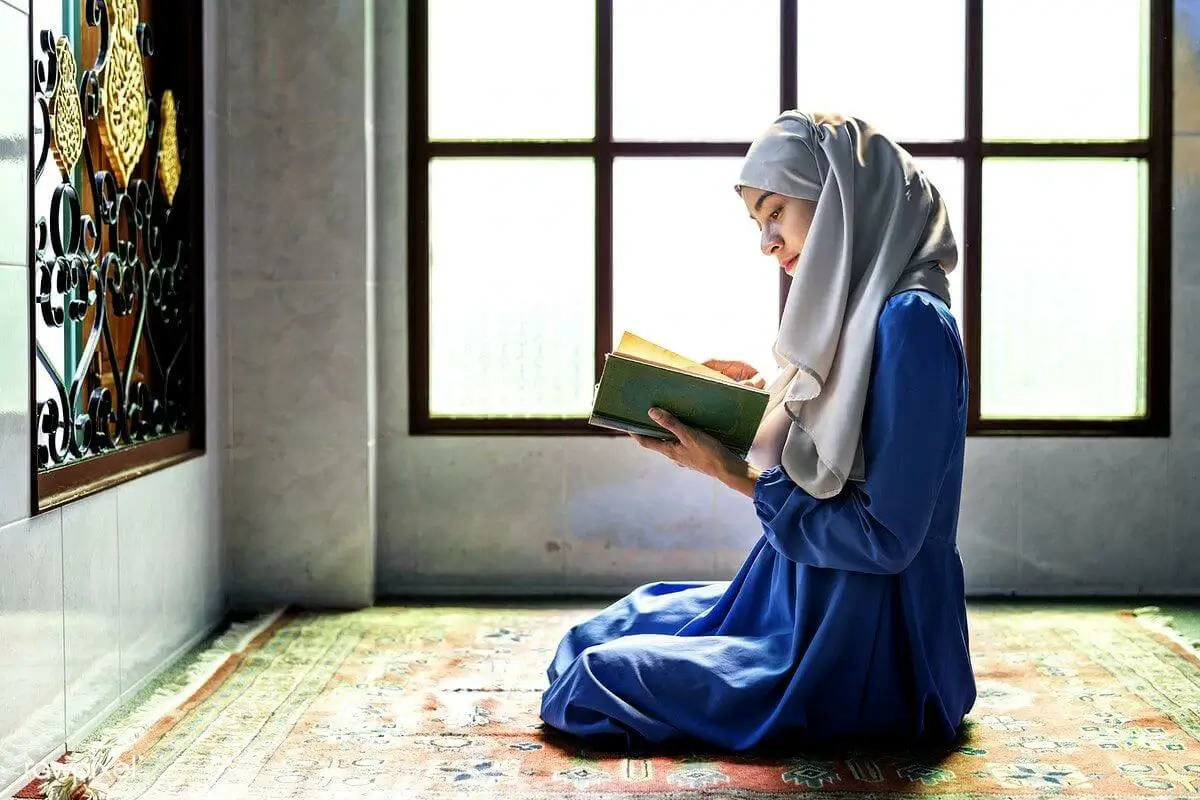
Do you know what does Quran say about women’s modesty in Surah Al-Nawr.
The Quran says about women’s modesty:
He surrounded him, one of them walking on a bloating that my father invites you to make you reward what I saw.
” Book your free trial now from our Quran For Adults Online Course“
What did the Holy Prophet say about women’s modesty?
Not only The Quran say about women’s modesty, but also the prophet peace be upon him.
-
That the Messenger of God, may God’s prayers and peace be upon him, while he was sitting in the mosque and the people were with him, when three people came, then two came to the Messenger of God, may God’s prayers and peace be upon him, and one went, he said: They stood on the Messenger of God, may God bless him and grant him peace. And as for the other, he sat behind them, and as for the third, he turned around, and when the Messenger of God, may God’s prayers and peace be upon him, had finished, he said: “Shall I not tell you about the three people? As for one of them, he sought refuge in God, so God sheltered him, and as for the other, he was shy, so God was shy from him, and as for the other, he turned away, so God turned away from him.”
-
Every religion has a moral, and Islam has a morality
- The Messenger, may God’s prayers and peace be upon him, said:
“God is alive, and he loves concealment and modesty.”
How important is modesty in Islam?
Quran say about women’s modesty many verses.
Modesty considered an attitude that motivates one to do everything good and to leave everything ugly
It is one of the characteristics of the praised soul.. It is the head of noble morals, the adornment of faith
and the emblem of Islam. As in the hadith:
“Every religion has a moral, and the character of Islam is modesty.”
Modesty is evidence of goodness, and it is the informant of safety, and the guide against slander. Wahb bin Munabbih said:
Faith is naked, its clothing is piety, and its adornment is modesty
What does Qur’an say about women’s modesty,is considered the approach followed from the teachings of Islam.
” Read also: how many times is mohammed mentioned in the quran“
What is haram for a woman in Islam?
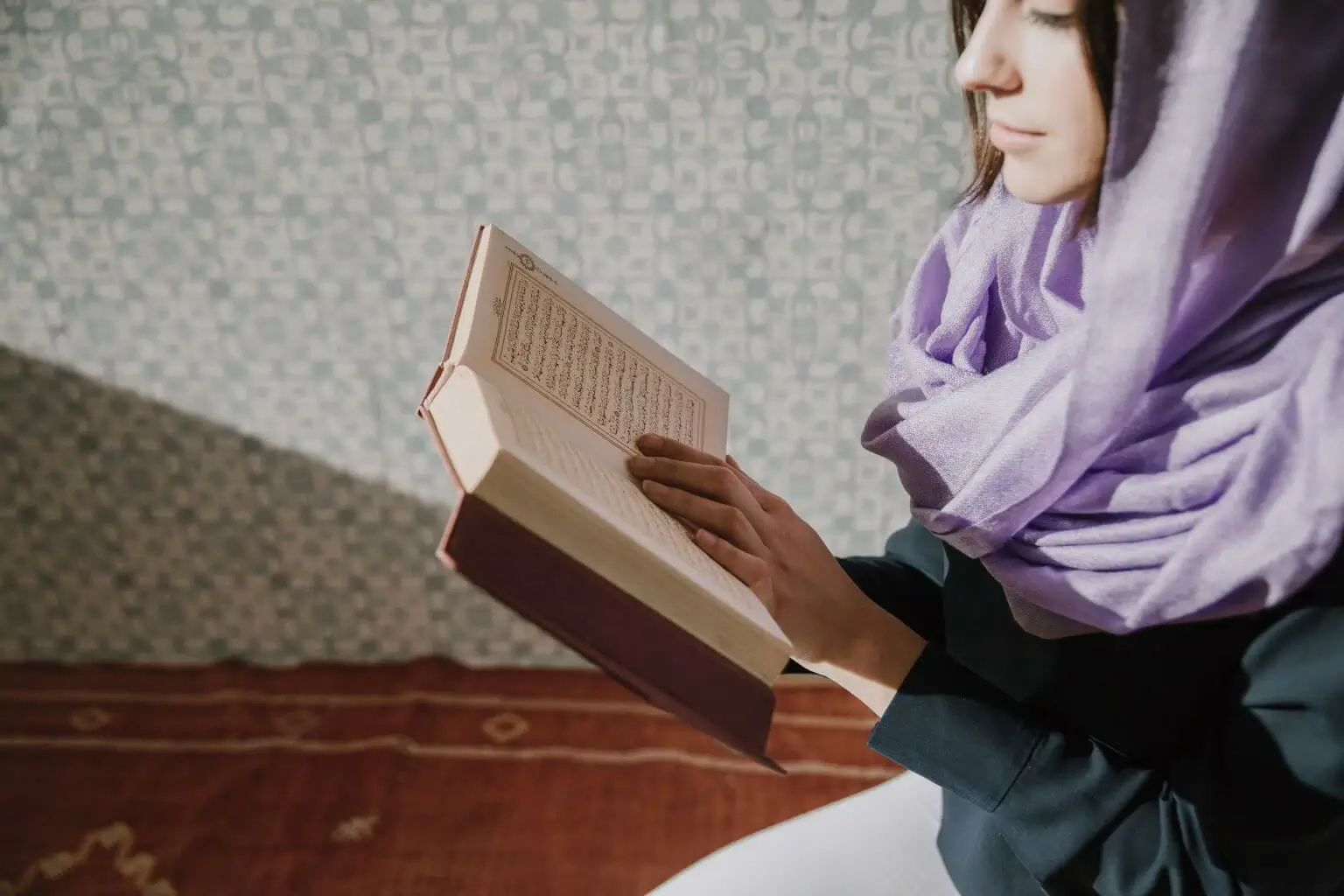
Haram is related to what does Qur’an say about women’s modesty.
Islam pays great attention to women and looks upon them with honor and pride.
In Islam a woman is a mother, sister, daughter, aunt, aunt, grandmother and wife, the man’s partner in bearing the responsibilities of life.
And God has assigned her with the man to advance the task of succession on the earth, to raise children and bring them up together, and made her on the same level with the man in honor and reverence.
Islam and the Qur’an have clearly adopted the issue of halal and haram, so we will discuss what does Qur’an say about women’s modesty.
The history also mentions that the Prophet Muhammad, peace and blessings be upon him, a few days before his death, went out to the people and was seriously ill.
and delivered the last sermon to them, and among what he said and recommended:
“O people, God is God in prayer, God is God in prayer.”
Islamic law took into account the differences between male and female, and based on these physical and psychological differences
Islam established the frameworks that govern the relationship of women to men and vice versa, and defined the rights and duties of each of them towards the other
Because of these differences, the man became responsible for the care and protection of the woman and the provision of a decent living for her, which is called in Islam the guardianship
A woman’s mahram is someone who is not allowed to have intercourse with her perpetually by kinship (such as the father, if he is high, the son, if he descends, the uncles, the maternal uncles, the brother, the nephew, the nephew)
or through breastfeeding (such as the woman’s brother through breastfeeding and the husband of the breastfeeding woman)
or a daughter-in-law (such as the mother’s husband, the husband’s father, if he is higher and the son of the husband and if he descends)
So let us know what does Quran say about women’s modesty and haram;
They do not show their adornments only for their members, parents, parents with their condemnations, their children, children with their or her children or brethren or bret their sisters.
” Read also: can i read quran on my period“
Awrah for Women
What does Quran say about women’s modesty and Awrah It is very explicit, and the Qur’an sets out the limits of the private parts of a woman and a man
Scholars use the word ‘awrah of a woman in front of foreigners. That is, men who are not her mahrams, and it means two things:
First: It is the awrah of the veil, which is what must be covered from her body for his own sake, not for the sake of the one looking at it.
and whatever is part of the awrah of the veil, such as the leg, neck, or any part of the body that must be covered for himself, even if there is a distortion in it, it must be covered.
This is because it is one of the awrah that must be covered for its own sake, not because of sedition, and the awrah of covering is all of a woman’s body except for the face and hands.
It is the opinion of the public, and some jurists have said that it is all of her body, so whoever said that it is all of a woman’s body.
it is forbidden to look at all of it, and whoever said it except for the face and hands; Permission to look at her face and hands.
The second: It is the nakedness of looking, and it is what it is forbidden to uncover from her body, not for its own sake, but for a reason outside of it
It is the men’s consideration of him and their fascination with him, and when the external cause is denied, it is not forbidden to reveal it; Like the face and the palms.
The four imams were of the view that the face and the palms are part of the nakedness of the gaze that must be covered when the fitnah becomes attached to it, so they obligated it to be covered during the time of fitnah
The Hanafis and Malikis held that the awrah of a woman is all of her body except for her face and hands, and they cited several evidence for that,
The Shafi’is and Hanbalis saw that the woman’s private parts are all over her body, and they used the same text as the first sayings, and they said: The verse forbade the display of adornment
By means of this, we will have clarified the limits of the awrah, according to what does Qur’an say about women’s modesty and the imams have said
” Read also: which surah in quran has 2 bismillah“
Hijab In Islam
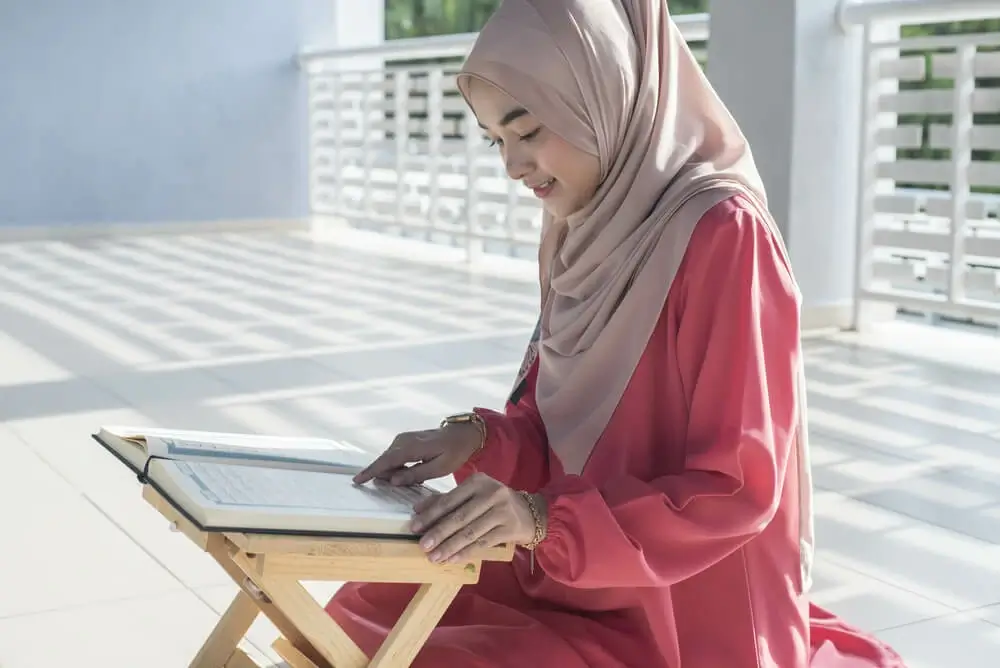
What does Quran say about women’s modesty? It was not limited only to the Awrah, but also included the limits of the legal Hijab.
Hijab in Islam is the dress that covers all a woman’s body and her adornment, in a way that prevents non-mahrams from seeing anything of her body or her adornment with which she adorns.
If the woman is in her house, then the veil is behind the walls, and if she is facing a man who is not her husband inside or outside the house, then it is in Islamic dress.
Hijab is one of the obligations of women in Islamic law when the girl reaches the age of obligation, i.e. the age at which the female sees her menstruation, and at which she reaches the age of women.
Evidence for the necessity of the veil is the multiple evidences from the Qur’an and Sunnah
and the practical consensus of the believing women from the era of the Prophet Muhammad through the era of the Rightly-Guided Caliphate and beyond.
Do you know what does Quran say about women’s modesty Especially in the hijab?
Quran say about women’s modesty;
And say to the believers, he is cheating from their eyes and keeping them and they do not show their adornment except what appeared and beaten their feters on their pockets
” Read also: quran verses about strength in hard times“
Hijab and prayer
The entire body of a woman is awrah except for the face and hands, and the legal dress required of a Muslim woman is any modest dress that does not describe the body’s charms and does not heal, and covers the whole body except for the face and hands.
It is also obligatory for a woman to cover all of her body except for the face and hands, and to cover the legs to the ankles, which is not disputed among the fuqaha’.
The concept of modesty for women is very broad and is not limited to appearance only, so there are many Quranic sayings about women’s modesty.
When can a woman take off her hijab
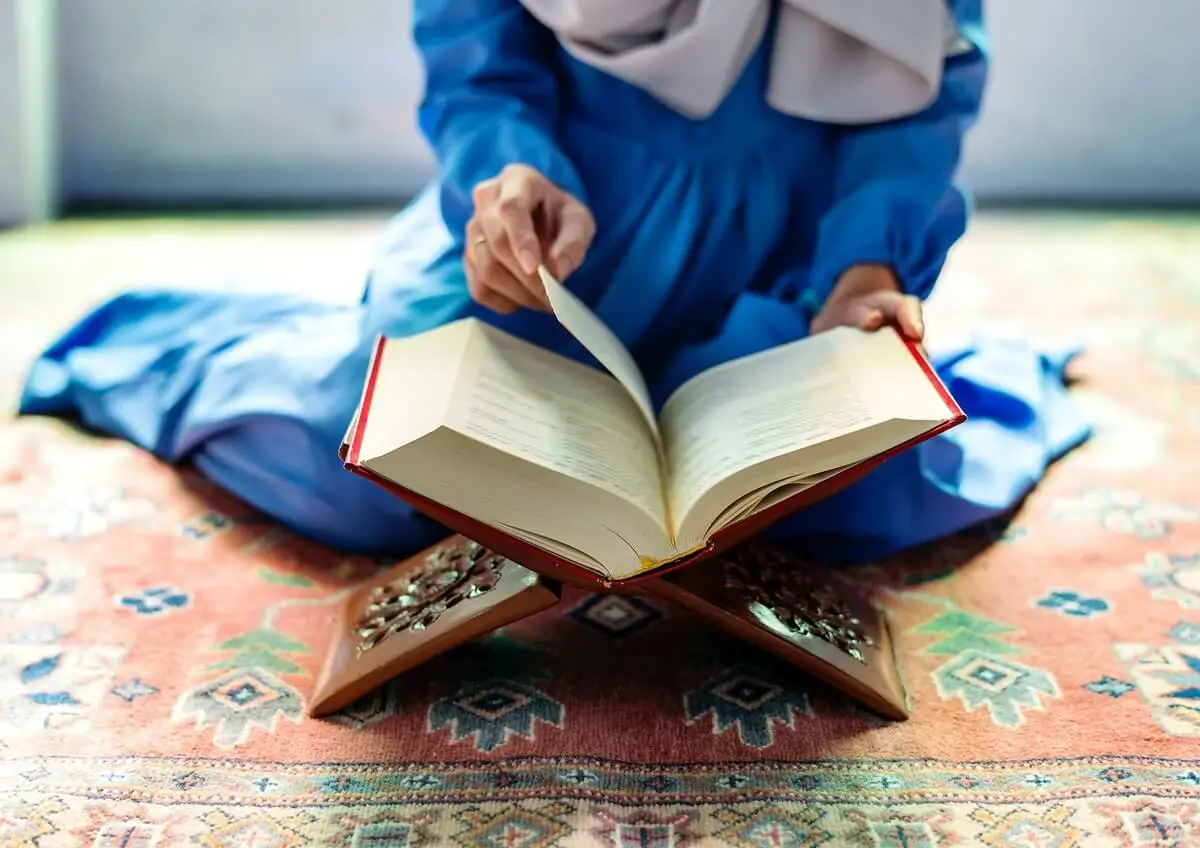
It is not permissible for a woman in charge to take off her veil in front of non-mahram men or when she leaves the house, as this is one of the greatest sins that leads to the wrath of God Almighty.
Hijab is an Islamic obligation and it is not permissible for a woman to take it off or give it up except for the utmost necessity.
Al-Azhar scholars said that it is permissible for a Muslim woman to take off her veil if she fears that she will be killed or attacked in Western countries
but if a Muslim woman can leave such countries where freedom of worship and the practice of Islamic rites are not available, then this is better than taking off her veil.
” Read also: where in the quran does it say tattoos are haram “
Elderly women
An elderly person from the Islamic perspective is a person who has reached an advanced stage of life, and you are unable or unable to carry out his duties and manage his affairs, and thus make him need someone else.
The Holy Qur’an depicts the life stages that a person goes through, starting with childhood, passing through youth, and ending with old age and death.
The stage of old age is characterized by weakness of strength, graying of the head, weak ability to memorize and remember, and lack of knowledge.
God Almighty says: And God created you, then He takes you, and among you is he who is sent back to the most wretched of life, so that no one knows after the knowledge of him
These stages and age developments that man goes through are natural developments and some of the inevitable predestination and laws of God in human life
which man does not have the power to push no matter how hard he tries to do so. Hence, the Muslim should accept it on the basis that it is an inevitable matter that God has decreed for His servants
Husband and wife
Marriage is a strong bond between a man and a woman, as it helps the self to be chaste and protect it from falling into the forbidden
and a person completes half of his religion with him, and meets his Lord with him in the best state of purity and purity.
It also helps to cooperate between the spouses in facing the difficulties of life with its joys and difficult troubles
and it also gives reassurance to the human soul, and through it the person obtains friendship and psychological stability
Some forbidden practices relating to clothing
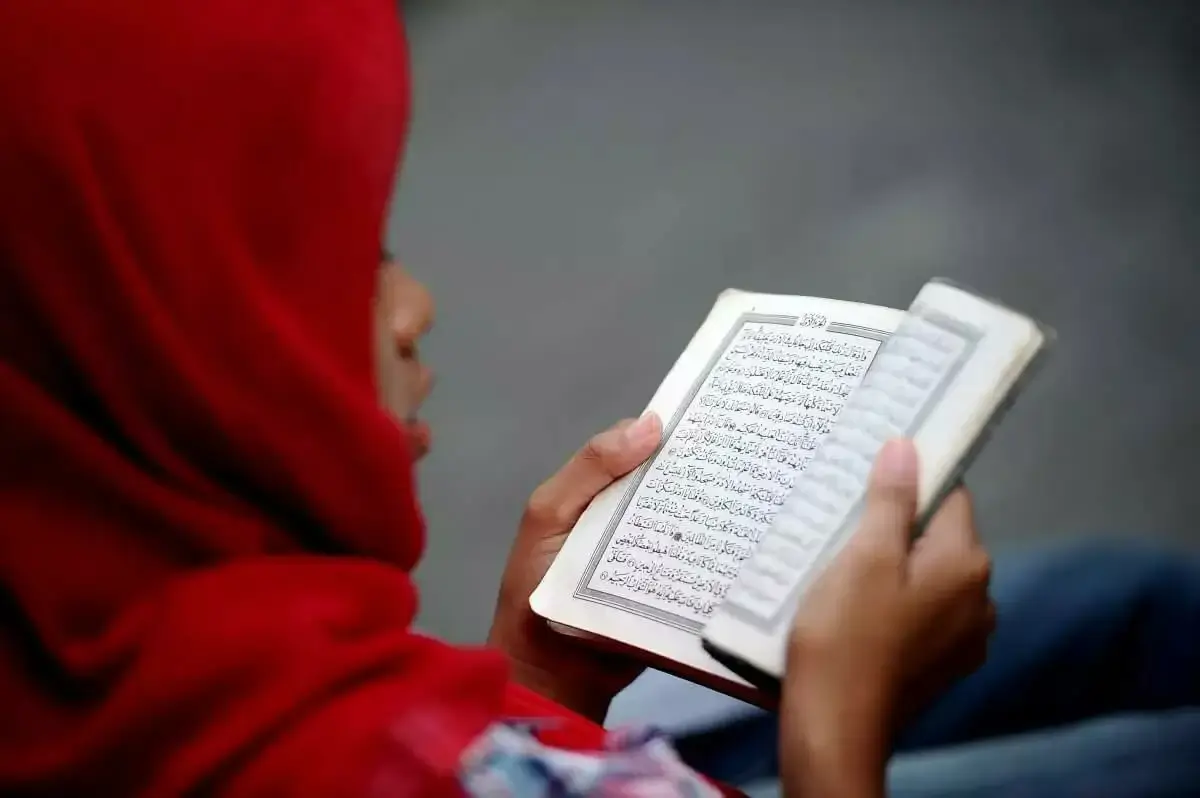
Forbidden practices are related to the modesty of a woman, as well as what does Qur’an say about women’s modesty.
Islam paid special attention to the issue of dress, and devoted this issue and its controls to chapters in Islamic jurisprudence
where Islam made regulations specific to men’s clothing and others specific to women, and common regulations for both.
From the point of view of Islam, nudity and uncovering one’s faults is considered a prelude to committing immoralities and major sins such as fornication
and the resulting spread of immorality, the demolition of families and societies, the mixing of lineages and the spread of diseases.
Therefore, Islam has called Muslims to virtue and chastity and to cover the faults, and urged to adornment with veils
and to protect the bodies from everything that harms them, such as heat or cold.
God has warned the children of Adam against the fitnah of Satan, and what he does
and plots in order to reveal the faults, and promises to be naked and to remove one’s clothes from Satan’s temptations and deeds.
A ban on silk clothes
The Messenger of God, may God’s prayers and peace be upon him, said,
“The clothing of silk and gold is forbidden for the males of my nation and permitted for their females.”
He also said,
“Whoever wears silk in this world will not wear it in the hereafter.”
The wisdom behind the prohibition is that silk is worn by a woman to beautify her husband
so the man should not wear it because of the fluidity and low value of the man, so that people see him, and he falls from his worth.
What is insulting women’s modesty?
The Prophet – may God’s prayers and peace be upon him – said:
((Indeed, from the words of the first prophecy that people realized: If you are not ashamed, then do whatever you want)),
so let the one who has lost modesty do what seems to him; He will taste the misfortune of his affair
and he will receive the recompense of tyranny, and he will regret it, and there will be no time for regret.
If a person is not ashamed, looks at people’s faults and follows them, throws off the robe of modesty and takes off the robe of faith,
and wastes his life in lust or whim, without religion, reason, or modesty, but there is no escape
so let him do whatever he wants, for God’s wrath, wrath and hatred will overtake him.
The sources of legislation are five, and the most powerful of all is the Holy Qur’an, and the Holy Qur’an was clear in what does Quran say about women’s modesty.
Is it haram to shave facial hair?
As we mentioned earlier, the concept of the forbidden is related to what does Qur’an say about women’s modesty , or what the prophet, may God bless him and grant him peace, said.
The scholars differed regarding the ruling on removing facial hair, as some have permitted it
Other scholars went to the view that the hair extension is only for the eyebrows without the rest of the face
and some scholars favored that saying, citing what was reported about the woman who came to Aisha
- May God be pleased with her
- Asking her to pluck some of the hairs on her face; In order to get closer to her husband, Lady Aisha allowed her to do so
So what is meant by the forbidden namas: is to take the hair of the eyebrows, as for other hair
it is silent and is excused, for the woman to take from it to adorn herself for her husband, or to leave it
As for the hair of the eyebrows, the basic principle in taking it from it is that it is forbidden
according to the aforementioned hadeeth on the authority of the Messenger of God.
may God’s prayers and peace be upon him, and the bleaching of the eyebrows is not included in that ruling; Because it is not considered an act of kindness, and it is not included in its ruling
The scholars have said that it is permissible to take from the hair of the eyebrows in two cases, and the following is an explanation of that
That taking from the eyebrows is necessary for treatment, which can only be done by that
That the hair of the eyebrows be excessive, harmful or disgraceful to the creation, so that the matter reaches the point of distortion
with attention to the necessity of estimating the need according to its value, and not increasing it
Thus, the Muslim woman will know what does Qur’an say about women’s modesty in detail about the ruling on private parts and what is forbidden, as well as adornment
Modesty for men too
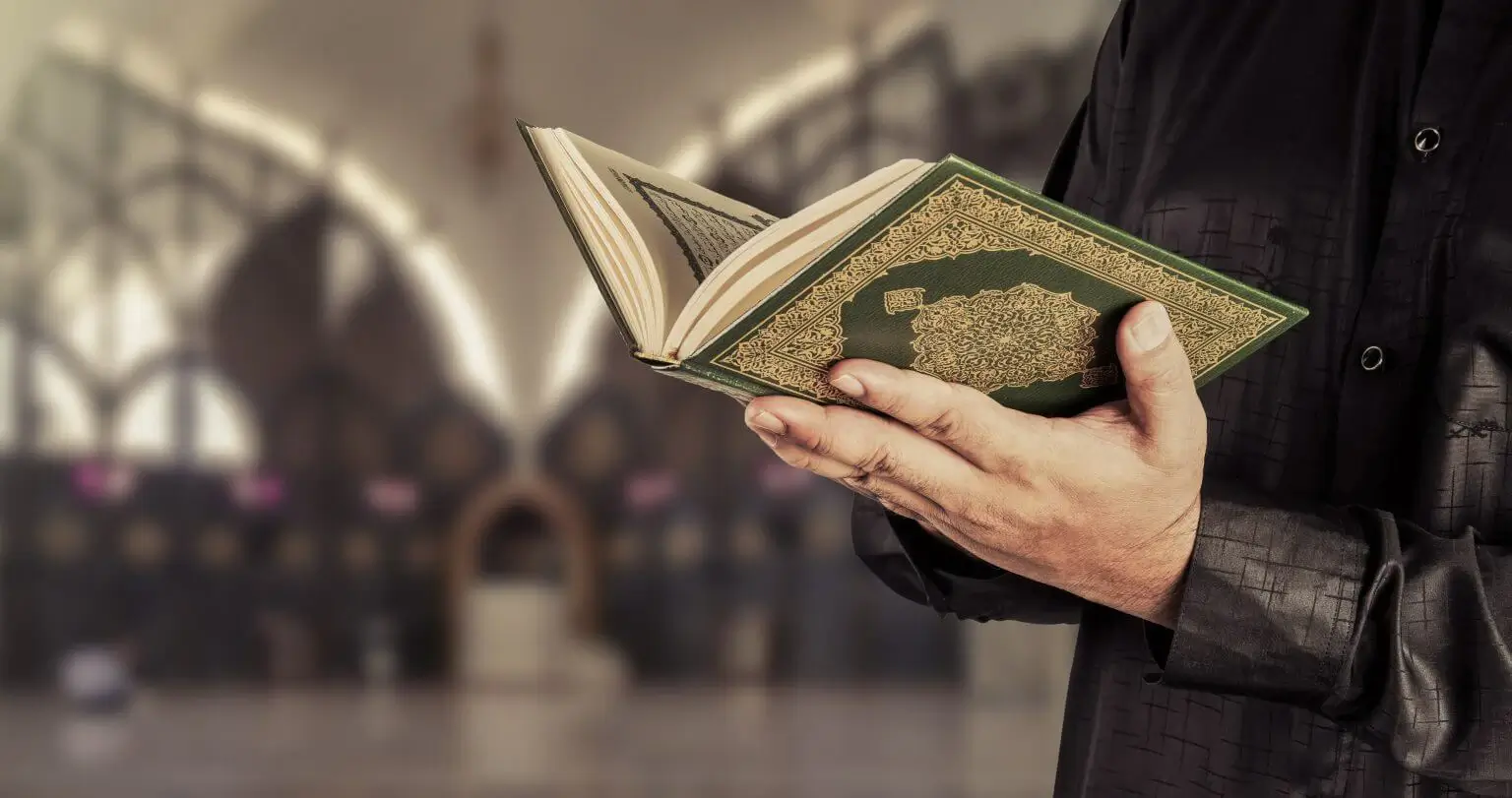
Many people believe that what does Quran say about women’s modesty or modesty in general is limited to women only, but that is wrong
Modesty is one of the most important qualities that complement chivalry in men
which calls them to the nobility of character, soundness of heart, and soundness of action.
If a man is not ashamed and feels shy, he will not prevent himself from looking at a passing woman on the road
In The end
Islamic Sharia has laid down some of the morals that a Muslim must have, including modesty.
So we discuss What does Quran say about women’s modesty in few lines
